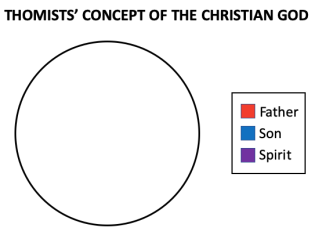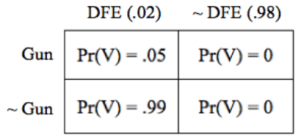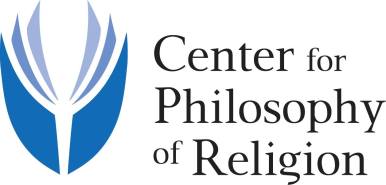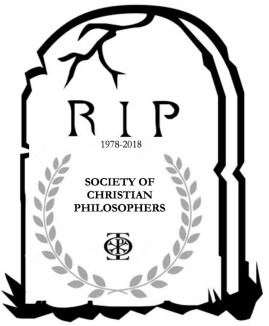- “In Defense of Philosophy of Religion“, Furthering Christendom
- Interview on Aseity, Simplicity, and the Trinity with Ryan Mullins on The Reluctant Theologian Podcast
- “Why Does God Exist?” Religious Studies
September 1, 2020
Updates
June 30, 2020
Euthanizing Liberty
I was asked to write about the value of the humanities in light of the recent trend of universities, such as Liberty, eliminating their philosophy programs.
Here is it. As I explain, this is not the article I initially set out to write. The muse took over.
August 20, 2019
Mullins Trounces Feser on Divine Simplicity
Theopolis recently hosted an exchange on the doctrine of divine simplicity (DDS), with the lead critique by Ryan Mullins and responses by Peter Leithart, Joe Lenow, and Ed Feser. Now, I was most interested in what Feser would say, being the staunch Thomist he is, because Mullins’ argument is unlike most I’ve seen against DDS.
I was surprised, then, to see Feser completely drop the ball by ignoring Mullins’ argument, instead repeating what he has said elsewhere in response to a completely different argument against DDS. In a final disappointing act, Feser has posted a lengthy, and rather unduly condescending and snarky reply to Mullins on his personal blog. The central nerve of Feser’s reply is the dubious claim that contemporary analytic philosophers use the term “property” so broadly that actions could be properties! Not a good look.
The doctrine of divine simplicity is philosophically and theologically ludicrous and has no place in any serious Christian doctrine of God. In point of historical fact, Aquinas unwittingly inherited his strong doctrine of simplicity from an Aristotelian tradition shaped by Muslim and Jewish apologists with explicitly anti-Trinitarian intent, which explains his departure from a more modest concept of divine unity found in his Christian predecessors like Augustine and Anselm.[1] Contemporary Christian philosophers like Feser, following Aquinas, are likewise unwitting heirs of that anti-Trinitarian tradition, and thereby display a perverse theological prioritization of simplicity over tri-unity, when the former should be understood in light of the latter rather than vice versa.
 [1] R. M. Burnes, “The Divine Simplicity in St. Thomas,” Religious Studies 25/3 (1989), pp. 271-293. Burnes writes, “The ‘unbelievers’ against whose ‘ridicule’ [Aquinas] wished to protect the Christian cause by not trying to offer rational proof for the Trinity were undoubtedly the Muslim and Jewish philosophers, whose approach he so much admired and imitated. What he probably did not fully appreciate is that their arguments for the divine simplicity which he adopted, and which would have been the basis for their ‘ridicule’, had by no means emerged in a neutral context but had been forged as weapons in a battle against the doctrine of the Trinity… Ironically then, Thomas accepted as the deliverances of authentic natural reasoning a tradition which had been formed specifically to counter the Trinitarian theism in which he believed.” (p. 287)
[1] R. M. Burnes, “The Divine Simplicity in St. Thomas,” Religious Studies 25/3 (1989), pp. 271-293. Burnes writes, “The ‘unbelievers’ against whose ‘ridicule’ [Aquinas] wished to protect the Christian cause by not trying to offer rational proof for the Trinity were undoubtedly the Muslim and Jewish philosophers, whose approach he so much admired and imitated. What he probably did not fully appreciate is that their arguments for the divine simplicity which he adopted, and which would have been the basis for their ‘ridicule’, had by no means emerged in a neutral context but had been forged as weapons in a battle against the doctrine of the Trinity… Ironically then, Thomas accepted as the deliverances of authentic natural reasoning a tradition which had been formed specifically to counter the Trinitarian theism in which he believed.” (p. 287)
August 9, 2019
I Value Guns because I Value Life
Many “second amendment people,” as Trump calls them, are fond of the aphorism “Better to have it and not need it than to need it and not have it.” This is simple common sense. But it is lost on many “intellectuals” who are quick to point out how unlikely it is that one would ever need to have a gun, as well as the additional risks that come with having them. But simple common sense wins the day. It is, in fact, common sense readily heeded in other contexts, such as in deciding to carry an umbrella even on days with a relatively low chance of rain. A fortiori with respect to carrying something that could save your life! How likely is it that carrying a gun could save your life? Let’s take a look at some statistics to get a rough idea.
According to the FBI, there were a total of 1,197,704 violent crimes reported in the United States in 2015. Comparing the FBI’s data to Bureau of Justice Statistics’ National Crime Victimization Surveys (NCVS) reveal that more than twice as much violent crime occurs than is reported. Based on 2015’s NCVS, “U.S. residents age 12 or older experienced an estimated 5.0 million violent victimizations.” The precise number is 5,006,620, which (significantly) excludes homicides (you can’t take a survey if you’re dead). So let’s add the total number of murders in 2015 as reported by the FBI, which is 15,696, to get a rate of 20.16 per 1000 of residents 12 or older who experience violent crime. So the annual likelihood that you, an average American resident, will be a victim of violent crime is slightly more than 2%. Except in unusual circumstances, the use of lethal force is justified in cases of violent crime, so let’s call a case of violent crime a deadly force encounter (DFE). The (annual) chances of an average US resident of being involved in a DFE, then, is about 2%, which is indeed quite low. That the chance of a certain outcome is low, however, is not enough to determine the rationality of one’s risk assessment. In addition to the likelihood of certain outcomes, we also have to consider how much value to place on those outcomes. Most gun owners see that the value of having a gun to protect oneself or others in a DFE outweighs the unlikelihood of being in a DFE. Why? Because the value of life is incommensurately higher. With that in mind, let’s take a look at some more numbers.
According to the best estimate, there are approximately 2.2-2.5 million defensive gun uses every year in the US. Here is a site that catalogues thousands of stories of citizens successfully defending themselves with guns as reported by local news outlets. Amazingly, according to a national survey conducted by John Lott, “about 95 percent of the time that people use guns defensively, they merely have to brandish a weapon to break off an attack.” (Lott 2010, p. 16). Let’s assume, then, that if you have a gun, the chances of being a victim in a DFE is .05. Let’s also assume that if you don’t have a gun your chance of being a victim in a DFE is .99 (the remaining 1% being cases where the criminal is completely deterred for some other reason, without you suffering injury or loss). Using these figures, we can draw up a decision theory matrix comparing the likelihood of being a victim of a violent crime [Pr(V)] in a DFE with and without a gun:

So the odds (relative risk) of not being victimized in a DFE are always about 20 times better if you have a gun compared to if you don’t. Admittedly, this doesn’t amount to much as far as the average US resident with a 2% annual chance of being in a DFE goes. But it is still something, especially considering that that something very well may be your life. Think of it this way: carrying an umbrella around with you on days forecasting just a 2% chance of rain might seem irrational to most people who don’t care that much about getting wet. But, given those same chances, would it be rational for the Wicked Witch of the West to carry one? I’d say so. Indeed, I’d be surprised if she didn’t always carry one.
But of course there really is no such thing as the “average US resident.” The chances of being in a DFE varies drastically depending on your age, race, gender, lifestyle, and where you live. I suspect that for most people the annual chances of being in a DFE are significantly higher than 2%, given that more than 3/4 of the US population live in urban environments, where the rate of violent crime is much higher. But suppose we stick with the 2% figure for the sake of argument, what would your lifetime chances of being in a DFE be? Unfortunately, there do not appear to be any recent studies that estimate the likelihood of being a victim of violent crime in the US over a lifetime (starting at age 12). But there was one such study, based on NCVS data from 1973-84, which put the likelihood at a staggering 83%. Thankfully, crime rates have fallen considerably since then. If we simply projected 2015’s 2% across 50 years (on the questionable methodological assumption that each year’s annual percent is independent of the others’), it drops to 64%. Some cite the CDC as more recently putting it around 50% (although I haven’t been able to check that source), which seems consonant with current crime rates. So let’s say that your chances of being in a DFE in your lifetime is around 50%. On that assumption, your chances of being victimized in a DFE is just 2.5% with a gun and 49.5% without. Now that’s significant! Who in their right mind wouldn’t take measures to drop their lifetime chances of being victimized in a DFE from half down to 2.5%?
The intellectual at this point might chide the commonsense carrier for not factoring in the risks inherent to gun ownership, pointing to statistics like these, especially those on accidental discharges resulting in death. They’ll pull your heartstrings with tragic stories of hapless children who kill themselves while playing with daddy’s gun. But the reality is that accidental discharges resulting in fatality are extremely rare. There are approximately 130 million gun owners in the US. 2014 saw a total of 32,856 gun deaths, 1.8% of which were accidental (Lott 2016, p. 139). Assuming, which would be as dubious as it would be generous, that all of those accidental deaths occurred to gun owners themselves, 591 gun owners, or .0000045%, accidentally killed themselves in 2014.
This reveals an inconsistency in the intellectual’s position: on the one hand he no doubt thinks it’s silly to take seriously the 2% risk of being in a DFE, and yet on the other hand thinks it’s not silly to take seriously a .0000045% risk of accidental discharge. It is also worth noting that I have more control over my risk of accidental discharges than I do over my risk of being in a DFE. Most accidental discharges are the result of gross negligence, and probably much more common among those who illegally possess firearms. Legal gun owners who value life enough to take seriously the 2% risk of threat against it would, I imagine, take the greatest of care in reducing the risk of accidental discharges. According to a 2016 study, also by Lott, Concealed Carry Permit holders are the most law-abiding people in the country, out ranking even law enforcement officers. Their risk of an accidental discharge due to negligence is therefore probably much lower than even .0000045%.
In conclusion, I value guns because I value life. I’m not suggesting that those who don’t value guns don’t value life. I’m suggesting rather that they don’t value life enough. After all, the amount of overlap among those who abandon common sense on the value of guns to protect life and those who abandon common sense on the value of the life of a fetus is probably only slightly more significant than it is non-incidental.
August 2, 2019
You Are Becoming Who You Will Be
I chronically underestimate how much time it takes to accomplish projects. I mean, radically underestimate. Something I guess will take just a few days takes weeks, even months. Months, years (e.g., my dissertation). I know this about myself, and yet still somehow fail to adjust to make more accurate judgments. And this is no mere practical error I make with writing and home improvement projects—I make it on the especially important project of self-improvement.
And then there’s procrastination. Not the useful kind, either. Nor the relatively benign, work-related kind. Moral procrastination—the kind that ignores a vice with the thought “I’ll work on that later, when [insert some arbitrary milestone].” Before long, you’re in the habit of imagining yourself as being a better person in the future, a time when you’ve successfully dealt with the vice. But that day is always tomorrow, and that better person always imaginary. And tackling some vices, no doubt, is a lifetime project. We don’t have time to put them off. The longer we do, the more they are fed, the bigger they grow, and the more imaginary that better person becomes.
Millions of people used the Facebook app that projected how they’d look as an older person. What no app could project, however, is what sort of person you will be. Will your character be roughly the same, or will you be a better person? Or possibly worse? We might not be able to control much how we look in the future, but we can control who we’ll be. The decisions we make today form the habits we have tomorrow. You are becoming who you will be. Who do you want to be?
The question of the kind of person I should be leads to two others: What sort of person do I want to be? And what sort of person am I becoming? Coming to grips with the first of these questions helps me discover my deeper desires and commitments. The second reminds me that I am surely becoming one sort of person or another. I am in process of becoming the person I will be.
It is striking how rarely we reflect on the fact that our choices, habits, and patterns influence the kind of person we become. Our culture suffers from what I call moral atomism. Moral atomism is the assumption that each choice we make is largely independent of all of our other choices. We think that our ability to decide is fresh and unhindered at each fork in the road we face. Like the ancient atomists who thought that the basic particles that make up reality were independent and interacted only by bumping into each other, we tend to think that each choice we make is isolated from every other choice. The truth of the matter is that each of our choices makes us either more or less able to make the right choices in the future.
—Gregory Ganssle, Our Deepest Desires, pp. 3-4.
It is said that the best time to plant a tree is: 20 years ago. The second best time is: now. Mutatis mutandis.
January 29, 2019
Juicy Quote XVII
“‘How ugly the stars are tonight! How trivial the pounding of the waves on the beach! And is it not crass to be thrilled by mountains? The rain forest and the wild-flowers are quite repulsive. And as for sunsets…’. If a full-blown relativism in aesthetics was correct, then those responses would be unusual but not in any way improper. But my reaction is that anyone who fails to appreciate the beauty of this universe is defective.”
—Peter Forrest, God without the Supernatural (Cornell, 1996), p. 133.
December 20, 2018
Review of Craig on Aseity
I met my goal of finishing my joint review of William Lane Craig’s God Over All (Oxford, 2016) and God and Abstract Objects (Springer, 2017) by Christmas. Still a draft, comments are welcome. The final will come out with Philosophy in Review next year.
I was much more disappointed with these books than I thought I’d be. There is something stiff-necked about Craig on this topic that is very frustrating, as my review shows. But his skill at mastering the subtleties of a vast, technical literature is enviable.
October 31, 2018
Exciting New POR Content
Notre Dame’s prestigious Center for Philosophy of Religion, associated with the cutting-edge work of the highest quality in the field, just uploaded a bunch of new and exciting content to their YouTube channel.
 Complimenting the high-profile lectures on, e.g., the atonement, problem of evil, faith, etc. and wonderfully animated videos of Plantinga’s defining contributions to the field, you can now find a host of videos on such perennial topics as racism, gender as a social construct, sexual orientation, gendered eating, gender discrimination, the marginalization of women, disability, and the role of religious communities in perpetuating “religious trauma.” Behold, the future of philosophy of religion!
Complimenting the high-profile lectures on, e.g., the atonement, problem of evil, faith, etc. and wonderfully animated videos of Plantinga’s defining contributions to the field, you can now find a host of videos on such perennial topics as racism, gender as a social construct, sexual orientation, gendered eating, gender discrimination, the marginalization of women, disability, and the role of religious communities in perpetuating “religious trauma.” Behold, the future of philosophy of religion!
Oh, and don’t miss CPR’s “Diversifying Analytic Theology” competition for “the best paper in analytic theology of an underrepresented religious or theological tradition,” sponsored by the APA’s Diversity and Inclusiveness Fund!
September 17, 2018
SCP: 1978-2018
Well, the Society of Christian Philosophers had a good run, celebrating its 40th anniversary at a vegan-catered conference this past weekend. Like the American Philosophical Association, the SCP is a shell of its former self, having been soul-sucked by political activists on the left. Consider Alvin Plantinga’s vision of nearly 40 years ago, as detailed in his “Advice to Christian Philosophers”:
My counsel can be summed up on two connected suggestions, along with a codicil. First, Christian philosophers and Christian intellectuals generally must display more autonomy–more independence of the rest of philosophical world. Second, Christian philosophers must display more integrity–integrity in the sense of integral wholeness, or oneness, or unity, being all of one piece. … And necessary to these two is a third: Christian courage, or boldness, or strength, or perhaps Christian self-confidence. We Christian philosophers must display more faith, more trust in the Lord; we must put on the whole armor of God.
Compare that to the SCP’s vision today as  summarized by one of the conference organizers:
summarized by one of the conference organizers:
The future is about teaching philosophy better, engaging in community outreach, rethinking “the canon”, willing to think about mental illness, seeking to be compassionate and caring, promoting diversity and inclusion, and working to be less white. And it includes children.
This vision, relayed in typical Orwellian code, could just as well be that of any other progressive, secular organization’s. Hence, the Society of Christian Philosophers can no longer be said to exist as a distinctively Christian or philosophical organization. Its acronym should henceforth be understood to stand for the Society of “Christian” Progressives. I’m sure Uncle Al and Sr. Swinburne are proud of this bold, counter-cultural direction.
Addendum (9/19/2018) in response to feedback.
- Saying the conference was “vegan catered” implies (falsely) it was exclusively vegan, when in fact there were also non-vegan options. Fine. For what it’s worth, the “vegan-catered conference” quip was meant to be a more humorous way of remarking on the political makeup of the conference (I’m told around 20% of the attendants were vegan or vegetarian).
- I was not presenting the quote in the post as a summary of the SCP’s official mission statement. This should have been clear from the facts that (i) it is obviously not formally written, and (ii) I was comparing it to Plantinga’s “Advice,” which was also not an official mission statement. The SCP’s official mission, available on their site, reads:
The Society of Christian Philosophers was organized in 1978 to promote fellowship among Christian Philosophers and to stimulate study and discussion of issues which arise from their Christian and philosophical commitments. One of its chief aims is to go beyond the usual philosophy of religion sessions at the American Philosophical Association and to stimulate thinking about the nature and role of Christian commitment in philosophy.
The quote in my post, rather, is the conference organizer’s summary of a seven-person panel discussion on “The Future of Christian Philosophy”. Given that context, make whatever you will of the importance of that summary.
- To my knowledge, no one has yet challenged my main point that the SCP has become a left-leaning organization without Christian distinction, as indicated chiefly by its institution of “diversity” quotas and the obvious intrusion of identity politics and all its attending social demands. Even “guidelines for inclusive chairing” are being passed out at the events! A more subtle post could and should be written. I wrote the above in haste and in frustration. But its main point stands.
- I’ve had a great time, and met many great people, at SCP events. They are, I’m sure many would attest, remarkable for their conviviality. That is precisely why I and many others are concerned about the SCP’s current trajectory, and are increasingly uneasy with financially supporting it through our membership. And some, I know for a fact, are happy to see us go. This leads to a final point.
- There seems to be a “Cold War” of sorts between progressive and conservative members of the SCP. Swinburnegate was a spark that ignited subterranean combustibles that had been brewing for a while. Social media and blogs are not ideal fora for determining just how deep our differences go. I, for one, think a conference on this would be great. I think getting together in person to explore and discuss this openly and honestly would go a long way toward a more accurate diagnosis of the problem, not to mention opportunities for reconciliation. If there is sufficient interest in such a conference, I’d be delighted to help organize it.
July 26, 2018
Phenomenal Conservatism and Dream Skepticism
Phenomenal conservatism: if is appears to S that p is the case, then S is prima facie justified in believing p is the case. It appears to me that I am not dreaming. So, I am prima facie justified in believing I am not dreaming.
Dream skepticism objection: Ah, but as you learned from Wykstra, ‘appears claims’ are justified only if: If p were not the case, then S would not likely be appeared-to-p-ly. But the possibility of a dream-inducing evil genius guarantees that your appearances would be no different, whether you were dreaming or not. So you cannot justify knowledge of the external world by appeal to phenomenal conservatism.
But maybe there is a difference, namely: it appears to me that there is a difference between dreaming and wakefulness. Now, the very fact that I am aware of such a distinction at all suggests the distinction is real. Were our whole lives a mere dream, how could we even be aware of such a distinction as that between dreaming and wakefulness?
To say I merely dreamed of the distinction does nothing to discredit the legitimacy of the distinction: I have a concept of a phenomenal state called “dreaming”, and I also have the concept of a different phenomenal state, one that is not dreaming. The distinction is as conceptually solid as any other between two distinct things. But then how do I get the concept of wakefulness in the first place other than from a state of wakefulness? It would be like having the concept of a color without having seen the color.
So the fact that it appears to me that there is a distinction between dreaming and wakefulness justifies my belief that there is something that induces non-dreaming phenomenal states—i.e., an external world. But does it justify the belief that I am not dreaming now? I don’t see how it could seem to me that there is a distinction between two phenomenal states without having actually experienced those different states, as seemings are phenomenal states. I must know what its like to dream, and know what it’s like not to dream; i.e., to be awake. And these two are not the same. So I must be able to tell the difference somehow (even if I can’t articulate exactly how). So I have good reason to believe that it is false that were I dreaming, I would not be appeared-to differently. And since it seems to me now that I am awake and not dreaming, I am prima facie justified in believing I am awake and not dreaming.

